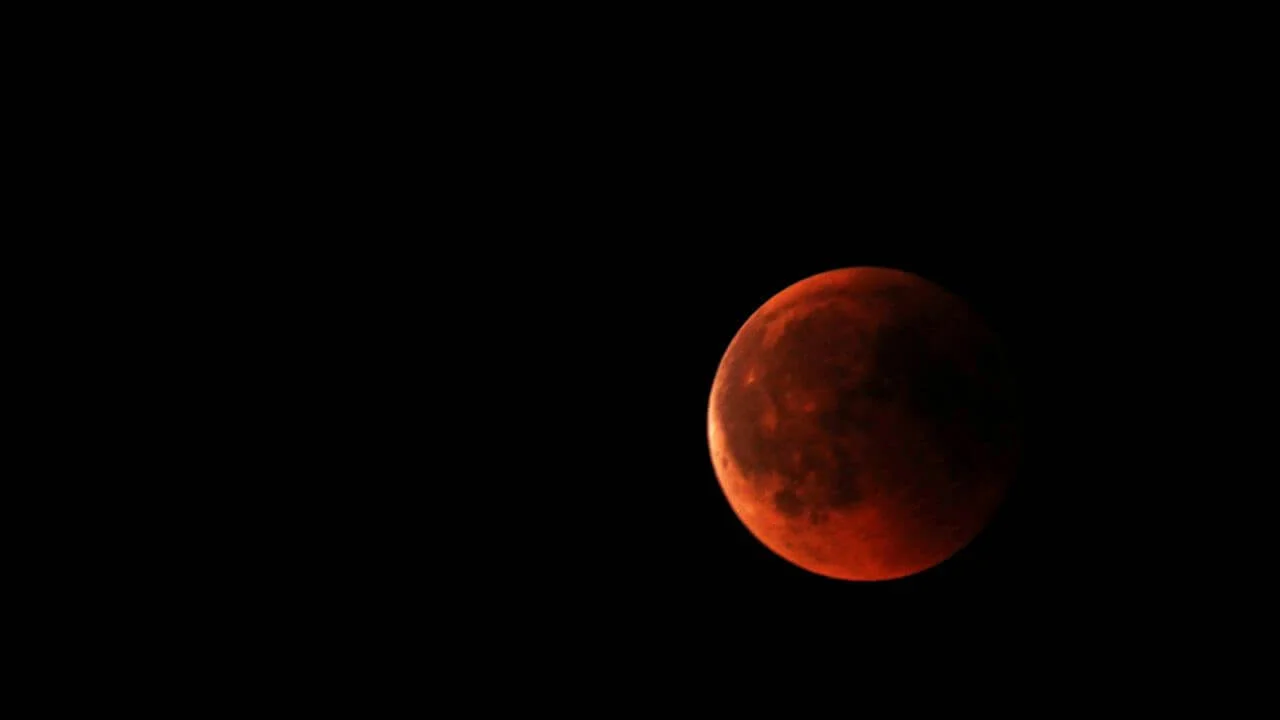Pakistan to Witness Longest Blood Moon Eclipse of 2025
On September 7–8, Pakistanis will experience a spectacular blood moon eclipse, the longest total lunar eclipse since 2022, visible across much of the country.

Skywatchers in Pakistan are set for a breathtaking celestial show as the Moon turns deep red during a blood moon total lunar eclipse this weekend. The event, happening on the night of September 7–8, 2025, will be the longest of its kind in recent years and promises to be an unforgettable sight.
Timing of the Eclipse in Pakistan
The eclipse begins on Sunday, September 7, at 8:28 pm (Pakistan Standard Time). The most striking phase, when the Moon glows a dark crimson, will last from 10:30 pm to 11:52 pm. The entire event will come to a close at 1:55 am on Monday, September 8.
This makes it one of the rare opportunities for Pakistanis to enjoy a full lunar eclipse without the need for telescopes or special equipment, as it will be clearly visible to the naked eye under clear skies.
Why the Moon Appears Red
A blood moon occurs when Earth aligns perfectly between the Sun and the Moon. As Earth’s shadow falls on the Moon, sunlight passing through our atmosphere scatters blue light and allows only red light to reach the lunar surface. This is the same natural effect that creates red and orange hues during sunsets.
The eclipse will last almost five and a half hours in total, with the Moon fully covered in Earth’s shadow for 1 hour and 22 minutes.
Global Visibility
While the eclipse will be visible across much of Asia, Europe, Africa, and Australia, Pakistan is especially well-positioned to see the event from start to finish. According to NASA, over 6 billion people worldwide will witness the total eclipse. However, most of North and South America will miss it due to daylight, except for regions like Hawaii, Alaska, and Brazil where a partial eclipse can be seen.
Linked Celestial Events
Astronomers highlight that lunar and solar eclipses usually occur in pairs. Following this lunar eclipse, a partial solar eclipse will take place on September 21, though it will not be visible in Pakistan.
A Rare Gift from the Sky
Earth is the only planet where total lunar eclipses occur because its shadow is large enough to completely cover the Moon. However, this phenomenon will not last forever. The Moon is gradually drifting away from Earth by about 4 cm each year. This slow movement means that in the distant future, total lunar eclipses will no longer occur.
For now, Pakistanis have the chance to witness one of nature’s most striking displays, a reminder of the ever-changing relationship between Earth and its only natural satellite.
For more details about this upcoming celestial event, read Longest Blood Moon Eclipse Since 2022 Coming Soon.
This article has been fact checked for accuracy, with information verified against reputable sources. Learn more about us and our editorial process.
Last reviewed on .
Article history
- Latest version
- Last updated by Dayyal Dungrela, MLT, BSc, BS
- Peer reviewed by Dr. Arjun Patel, PhD
Reference(s)
- Nichols, Michelle. “Types of Eclipses: Lunar Eclipses and Solar Eclipses Explained.”, 27 February 2025 Adler Planetarium <https://www.adlerplanetarium.org/blog/solar-eclipses-and-lunar-eclipses-explained>.
Cite this page:
- Posted by Aisha Ahmed